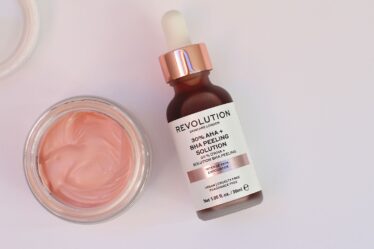
ð¨ð³ Kelly Zhang Nan steps down as CEO of TikTokâs Chinese sister app Douyin. Zhang, who joined parent company ByteDance in 2014 and was promoted to head of the groupâs China business in 2020 to oversee products like news aggregator Jinri Toutiao, will now focus on the groupâs video editor CapCut and AI products. ByteDance CEO Liang Rubo cited âbusiness development needs and personal preferencesâ for the move. It is unclear when ByteDance will fill the vacant role but a person familiar with the matter told the SCMP that they believed it would not happen immediately. Douyin emerged as a major e-commerce player after the short video app added shopping to its social network functionality, changing the landscape for fashion and beauty brands seeking additional online sales channels in China. [South China Morning Post]
ð®ð³ Indian beauty and fashion retailer Nykaa reports surge in Q3 profits. The multi-brand retail giant has posted a consolidated net profit of 16.2 crore rupees ($1.9 million) for the quarter, up 97 percent year over year. Revenue from operations increased by 22 percent during the period, to 1,789 crore rupees ($215 million). The gross merchandise value of the beauty and personal care division grew 25 percent while the fashion division grew by 40 percent. [Economic Times]
ðªð¹ Ethiopian textile industry gets $28 million boost for green innovation. Funding for the five-year initiative will be provided by the Global Environmental Facility, a multilateral sustainability agency providing grants and finance for projects affiliated with biodiversity, climate change and land degradation, and the United Nations Industrial Development Organisation. Despite recent political, economic and security challenges, the country is seen as an emerging sourcing hub for fashion. [Ecotextile, Fibre2Fashion]
ð¸ð¦ Saudi Arabiaâs Mithaq Capital acquires US retailer The Childrenâs Place. The investment fund for the family behind the kingdomâs Al-Rajhi bank has acquired a 54 percent stake in the troubled New Jersey-based childrenâs clothing chain operating hundreds of stores across North American amid reports that the retailer has recorded a loss and started shrinking its store footprint. [Semafor]
ð°ðª Kenyan manufacturers scorn duty-free textile import proposals. Manufacturers and governors from 24 cotton-growing counties across the country have called on the national government to abandon plans which they say contradict a recent commitment to invest in local farmers, gins, mills and manufacturers. âDuty-free fabric leaves farmers and textile workers jobless,â said Thika Cloth Mills MD Tejal Dodhia. [The Standard Kenya]
ð®ð³ Indian menswear brand Bombay Shirt Company secures investment. The brand founded by Akshay Narvekar in 2012, present in 20 stores across 10 cities, has raised 54 crore rupees ($6.5 million) in a Series B funding round led by venture capital firm Singularity, with participation from Caratlane founder and Singularity partner Mithun Sacheti. [Economic Times]
ð¨ð³ LâOréal takes a minority stake in Chinese fragrance brand To Summer. The investment for an undisclosed amount was made through Shanghai Meicifang Investment, the Chinese unit of the French beauty majorâs venture capital fund Bold. The deal follows a 2022 investment in another niche Chinese fragrance brand, Documents. [BoF Inbox]
ð²ð½ Mercado Libre and Amazon are accused of stifling competition. Mexicoâs Federal Economic Competition Commission (COFECE) has estimated that the two companies have come to control 85 percent of e-commerce sales and transactions made in the country by establishing three âpossible barriers to competitionâ that could limit new entrants and the expansion of smaller players. [Sourcing Journal]
ðµð° Pakistanâs apparel and textile industry expects few changes after election. While political negotiations continue, a new government is taking shape following the Feb. 8 election that will likely see a coalition form from several parties. According to the Sourcing Journal, which canvassed opinion across local manufacturers, âfor the most part, the expectation is that economic policies will not swerve widely from the past.â [Sourcing Journal]
ð¹ð· H&M severs relationship with Turkish factory over shooting of union leader. The fast fashion giant has reportedly cut ties with Akin Tekstil after an associate of its owner allegedly assaulted the president of the Deriteks union for attempting to compel the Izmir factory to pay workers severance and compensation after it filed for bankruptcy. [Bianet]
ð®ð³ Globe Textiles India Limited (GTIL) buys Globe Denwash Private Limited. GTIL, a manufacturer, supplier, and trader of textile and apparel has announced it plans to acquire the firm. GTIL CEO Bhavin Parikh said that the deal will help it âintroduce innovative sustainable fashion garments and practices which are sought after by customers from India, Europe and US.â [Economic Times]
ð¦ðª Abu Dhabi royals invest in Indian fashion brand Beyoung. The terms of the deal between the Rajasthan-based D2C brand founded by Shivam Soni in 2018 and the royal office of Sheikh Tahnoon Bin Saeed Bin Tahnoon Al Nahyan were not disclosed. Zulfiquar Ghadiyali, executive director of Al Nahyanâs office said that the acquisition âaligns with our long-term vision of supporting the Indian apparel industry and fostering the creation of international brands.â [Apparel Resources]
ð®ð³ Indiaâs Honasa Consumer records strong profit growth. The beauty and personal care group whose portfolio includes brands offering products with natural, organic, ayurvedic and vegan ingredients such as Mamaearth, Aqualogica, Aqualogica, The Derma Co, Ayuga and Bblunt, has posted 265 percent growth of consolidated net profit to 26 crore rupees ($3.1 million) for the third quarter. [Indian Retailing]
ð¦ðª Umar Kamani and Naomi Campbell to open Dubai talent agency. The British co-founder of fast fashion retailer PrettyLittleThing has announced that he and the British supermodel and will launch a management business in the United Arab Emirates that aims to make the short contracts of foreign talent in the UAE and wider Middle East less âtransactionalâ in nature. [Arabian Business]
ð®ð³ Indian garment workers in Tamil Nadu protest delay to minimum wage hike. Members of the Garment and Fashion Workersâ Union (GAFWU) rallied in the state capital Chennai against a prolonged delay in the announcement of a new floor wage. Governments in the country are required to increase the minimum wage every five years but Tamil Nadu has not done this since 2014. [Sourcing Journal]
ð¿ð¦ South Africans turn to Chinaâs e-tailers for drop-shipping income. University graduates who cannot find work amid the countryâs unemployment crisis are making a living by taking orders from AliExpress and Shein. But some find themselves targeted by tax and regulatory authorities and local industry bodies are concerned about the impact of the trade on traditional fashion retailers. [Rest of World]
ð¸ð¬ Lucas Ngoo steps down from Singaporean recommerce major Carousell. The co-founder will no longer manage operations for the online marketplace whose parent Carousell Group owns namesake platform Carousell, Vietnamâs Chotot and Malaysiaâs Mudah, Singaporean sneaker marketplace Ox Street and secondhand fashion platform Refash. [Inside Retail Asia]
ð®ð³ Indian jeweller Senco Gold & Diamonds reports single-digit profit growth. The listed Kolkata-based jewellery retailer with over 150 showrooms nationwide has posted 5.8 percent growth in consolidated profit after tax amounting to 109.32 crore rupees ($13.1 million) for the third quarter. [Economic Times]
ð¨ð³ Chinese beauty brands produce their own social media mini dramas. Episodes typically lasting three to five minutes (but can be as short one or capped at ten) created for platforms including Douyin, Kuaishou and WeChat Mini Programs are providing brands like Marubi, Kans and Proya with an increasingly popular and organic way to seed product. [Jing Daily]
ð·ðº US mulls âself-certificationâ of non-Russian diamonds from India and Africa. A US government official has reportedly indicated that jewellers might be able to accept âself-certificationâ of diamond imports having no Russian links, unlike the system for European importers put forward by the EU requiring blockchain-based tracing from Brussels. [Economic Times]


